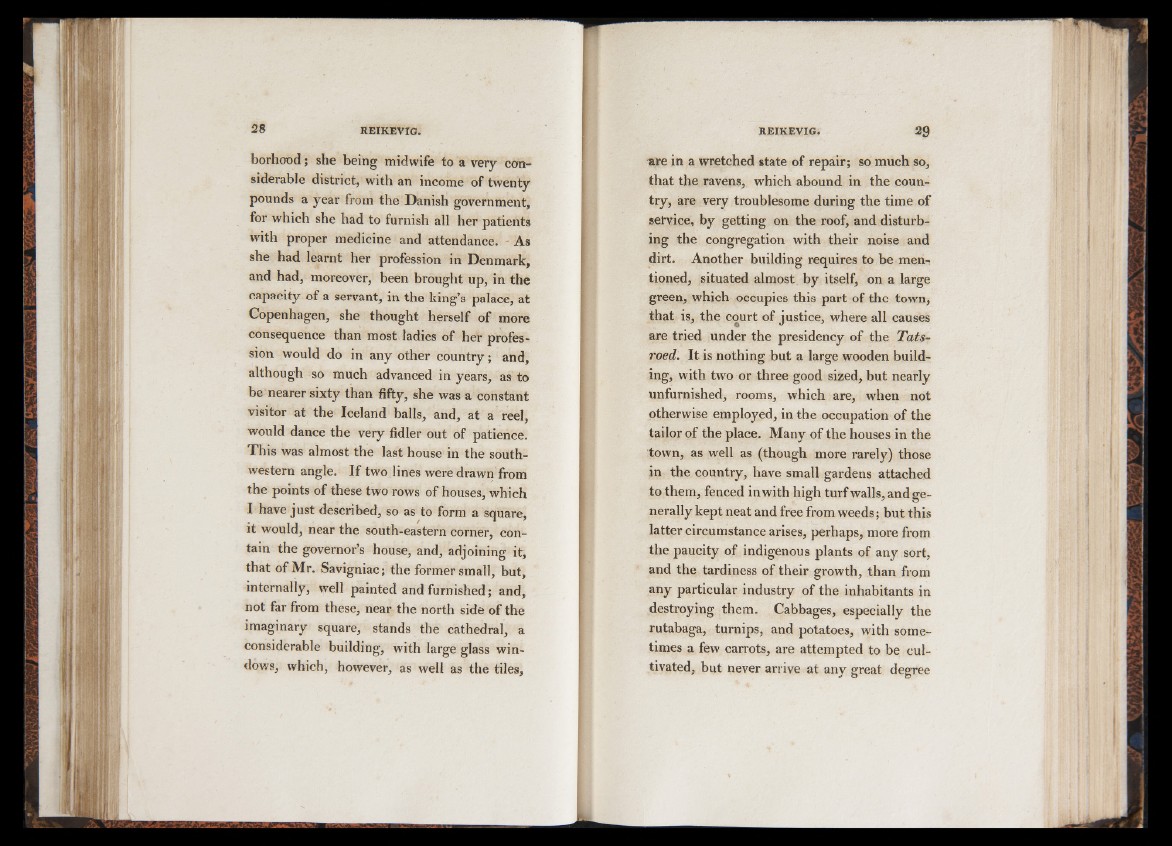
borhood; she being midwife to a very considerable
district, with an income of twenty
pounds a year from the Danish government,
for which she had to furnish all her patients
with proper medicine and attendance. As
she had learnt her profession in Denmark,
and had, moreover, been brought up, in the
capacity of a servant, in the king’s palace, at
Copenhagen, she thought herself of more
consequence than most ladies of her profession
would do in any other country; and,
although so much advanced in years, as to
be nearer sixty than fifty, she was a constant
visitor at the Iceland balls, and, at a reel,
would dance the very fidler out of patience.
This was almost the last house in the southwestern
angle. If two lines were drawn from
the points of these two rows of houses, which
I have just described, so as to form a square,
it would, near the south-eastern corner, contain
the governor’s house, and, adjoining it,
that of Mr. Savigniac; the former small, but,
internally, well painted and furnished; and,
not far from these, near the north side of the
imaginary square, stands the cathedral, a
considerable building, with large glass windows,
which, however, as well as the tiles,
are in a wretched state of repair; so much so,
that the ravens, which abound in the country,
are very troublesome during the time of
service, by getting on the roof, and disturbing
the congregation with their noise and
dirt. Another building requires to be mentioned,
situated almost by itself, on a large
green, which occupies this part of the town,
that is, the court of justice, where all causes
are tried under the presidency of the Tats-
roed. It is nothing but a large wooden building,
with two or three good sized, but nearly
unfurnished, rooms, which are, when not
otherwise employed, in the occupation of the
tailor of the place. Many of the houses in the
town, as well as (though more rarely) those
in the country, have small gardens attached
to them, fenced in with high turf walls, and generally
kept neat and free from weeds; but this
latter circumstance arises, perhaps, more from
the paucity of indigenous plants of any sort,
and the tardiness of their growth, than from
any particular industry of the inhabitants in
destroying them. Cabbages, especially the
rutabaga, turnips, and potatoes, with sometimes
a few carrots, are attempted to be cultivated,
but never arrive at any great degree